- Home
- Neil Gaiman
The Ocean at the End of the Lane: A Novel Page 10
The Ocean at the End of the Lane: A Novel Read online
Page 10
Something fluttered in my chest, like a tiny moth, and then was still.
Old Mrs. Hempstock said, “Can you be brave?”
I did not know. I did not think so. It seemed to me that all I had done so far that night was to run from things. The old woman was holding the needle she had used to sew up my dressing gown, and she grasped it now, not as if she were going to sew anything with it, but as if she were planning to stab me.
I pulled my foot back. “What are you going to do?”
Lettie squeezed my hand. “She’s going to make the hole go away,” she said. “I’ll hold your hand. You don’t have to look, not if you don’t want to.”
“It will hurt,” I said.
“Stuff and nonsense,” said the old woman. She pulled my foot toward her, so the sole was facing her, and stabbed the needle down . . . not into my foot, I realized, but into the hole itself.
It did not hurt.
Then she twisted the needle and pulled it back toward her. I watched, amazed, as something that glistened—it seemed black, at first, then translucent, then reflective like mercury—was pulled out from the sole of my foot, on the end of the needle.
I could feel it leaving my leg—the sensation seemed to travel up all the way inside me, up my leg, through my groin and my stomach and into my chest. I felt it leave me with relief: the burning feeling abated, as did my terror.
My heart pounded strangely.
I watched Old Mrs. Hempstock reel the thing in, and I was still unable, somehow, to entirely make sense of what I was seeing. It was a hole with nothing around it, over two feet long, thinner than an earthworm, like the shed skin of a translucent snake.
And then she stopped reeling it in. “Doesn’t want to come out,” she said. “It’s holding on.”
There was a coldness in my heart, as if a chip of ice were lodged there. The old woman gave an expert flick of her wrist, and then the glistening thing was dangling from her needle (I found myself thinking now not of mercury, but of the silvery slime trails that snails leave in the garden), and it no longer went into my foot.
She let go of my sole and I pulled the foot back. The tiny round hole had vanished completely, as if it had never been there.
Old Mrs. Hempstock cackled with glee. “Thinks she’s so clever,” she said, “leaving her way home inside the boy. Is that clever? I don’t think that’s clever. I wouldn’t give tuppence for the lot of them.”
Ginnie Hempstock produced an empty jam jar, and the old woman put the bottom of the dangling thing into it, then raised the jar to hold it. At the end, she slipped the glistening invisible trail off the needle and put the lid on the jam jar with a decisive flick of her bony wrist.
“Ha!” she said. And again, “Ha!”
Lettie said, “Can I see it?” She took the jam jar, held it up to the light. Inside the jar the thing had begun lazily to uncurl. It seemed to be floating, as if the jar had been filled with water. It changed color as it caught the light in different ways, sometimes black, sometimes silver.
An experiment that I had found in a book of things boys could do, and which I had, of course, done: if you take an egg, and blacken it completely with soot from a candle flame, and then put it into a clear container filled with salt water, it will hang in the middle of the water, and it will seem to be silver: a peculiar, artificial silver, that is only a trick of the light. I thought of that egg, then.
Lettie seemed fascinated. “You’re right. She left her way home inside him. No wonder she didn’t want him to leave.”
I said, “I’m sorry I let go of your hand, Lettie.”
“Oh, hush,” she said. “It’s always too late for sorries, but I appreciate the sentiment. And next time, you’ll keep hold of my hand no matter what she throws at us.”
I nodded. The ice chip in my heart seemed to warm then, and melt, and I began to feel whole and safe once more.
“So,” said Ginnie. “We’ve got her way home. And we’ve got the boy safe. That’s a good night’s work or I don’t know what is.”
“But she’s got the boy’s parents,” said Old Mrs. Hempstock. “And his sister. And we can’t just leave her running around. Remember what happened in Cromwell’s day? And before that? When Red Rufus was running around? Fleas attract varmints.” She said it as if it were a natural law.
“That can wait until the morrow,” said Ginnie. “Now, Lettie. Take the lad and find a room for him to sleep in. He’s had a long day.”
The black kitten was curled up on the rocking chair beside the fireplace. “Can I bring the kitten with me?”
“If you don’t,” said Lettie, “she’ll just come and find you.”
Ginnie produced two candlesticks, the kind with big round handles, each one with a shapeless mound of white wax in it. She lit a wooden taper from the kitchen fire, then transferred the flame from the taper first to one candlewick and then to the other. She handed one candlestick to me, the other to Lettie.
“Don’t you have electricity?” I asked. There were electric lights in the kitchen, big old-fashioned bulbs hanging from the ceiling, their filaments glowing.
“Not in that part of the house,” said Lettie. “The kitchen’s new. Sort of. Put your hand in front of your candle as you walk, so it doesn’t blow out.”
She cupped her own hand around the flame as she said this, and I copied her, and I walked behind her. The black kitten followed us, out of the kitchen, through a wooden door painted white, down a step, and into the farmhouse.
It was dark, and our candles cast huge shadows, so it looked to me, as we walked, as if everything was moving, pushed and shaped by the shadows, the grandfather clock and the stuffed animals and birds (Were they stuffed? I wondered. Did that owl move, or was it just the flickering candle flame that made me think that it had turned its head as we passed?), the hall table, the chairs. All of them moved in the candlelight, and all of them stayed perfectly still. We went up a set of stairs, and then up some steps, and we passed an open window.
Moonlight spilled onto the stairs, brighter than our candle flames. I glanced up through the window and I saw the full moon. The cloudless sky was splashed with stars beyond all counting.
“That’s the moon,” I said.
“Gran likes it like that,” said Lettie Hempstock.
“But it was a crescent moon yesterday. And now it’s full. And it was raining. It is raining. But now it’s not.”
“Gran always likes the full moon to shine on this side of the house. She says it’s restful, and it reminds her of when she was a girl,” said Lettie. “And it means you don’t trip on the stairs.”
The kitten followed us up the stairs in a sequence of bounces. It made me smile.
At the top of the house was Lettie’s room, and beside it, another room, and it was this room that we entered. A fire blazed in the hearth, illuminating the room with oranges and yellows. The room was warm and inviting. The bed had posts at each corner, and it had its own curtains. I had seen something like it in cartoons, but never in real life.
“There’s clothes already set out for you to put on in the morning,” said Lettie. “I’ll be asleep in the room next door if you want me—just shout or knock if you need anything, and I’ll come in. Gran said for you to use the inside lavatory, but it’s a long way through the house, and you might get lost, so if you need to do your business there’s a chamber pot under the bed, same as there’s always been.”
I blew out my candle, which left the room illuminated by the fire in the hearth, and I pushed through the curtains and climbed up into the bed.
The room was warm, but the sheets were cold as I got inside them. The bed shook as something landed on it, and then small feet padded up the blankets, and a warm, furry presence pushed itself into my face and the kitten began, softly, to purr.
There was still a monster in my house, and, in a fragment of time that had, perhaps, been snipped out of reality, my father had pushed me down into the water of the bath and tried, perhaps, to drown
me. I had run for miles through the dark. I had seen my father kissing and touching the thing that called itself Ursula Monkton. The dread had not left my soul.
But there was a kitten on my pillow, and it was purring in my face and vibrating gently with every purr, and, very soon, I slept.
X.
I had strange dreams in that house, that night. I woke myself in the darkness, and I knew only that a dream had scared me so badly that I had to wake up or die, and yet, try as I might, I could not remember what I had dreamed. The dream was haunting me: standing behind me, present and yet invisible, like the back of my head, simultaneously there and not there.
I missed my father and I missed my mother, and I missed my bed in my house, only a mile or so away. I missed yesterday, before Ursula Monkton, before my father’s anger, before the bathtub. I wanted that yesterday back again, and I wanted it so badly.
I tried to pull the dream that had upset me so to the front of my mind, but it would not come. There had been betrayal in it, I knew, and loss, and time. The dream had left me scared to go back to sleep: the fireplace was almost dark now, with only the deep red glow of embers in the hearth to mark that it had once been burning, once had given light.
I climbed down from the four-poster bed, and felt beneath it until I found the heavy china chamber pot. I hitched up my nightgown and I used it. Then I walked to the window and looked out. The moon was still full, but now it was low in the sky, and a dark orange: what my mother called a harvest moon. But things were harvested in autumn, I knew, not in spring.
In the orange moonlight I could see an old woman—I was almost certain it was Old Mrs. Hempstock, although it was hard to see her face properly—walking up and down. She had a big long stick she was leaning on as she walked, like a staff. She reminded me of the soldiers I had seen on a trip to London, outside Buckingham Palace, as they marched backwards and forwards on parade.
I watched her, and I was comforted.
I climbed back into my bed in the dark, lay my head on the empty pillow, and thought, I’ll never go back to sleep, not now, and then I opened my eyes and saw that it was morning.
There were clothes I had never seen before on a chair by the bed. There were two china jugs of water—one steaming hot, one cold—beside a white china bowl that I realized was a handbasin, set into a small wooden table. The fluffy black kitten had returned to the foot of the bed. It opened its eyes as I got up: they were a vivid blue-green, unnatural and odd, like the sea in summer, and it mewed a high-pitched questioning noise. I stroked it, then I got out of bed.
I mixed the hot water and the cold in the basin, and I washed my face and my hands. I cleaned my teeth with the cold water. There was no toothpaste, but there was a small round tin box on which was written Max Melton’s Remarkably Efficacious Tooth Powder, in old-fashioned letters. I put some of the white powder on my green toothbrush, and cleaned my teeth with it. It tasted minty and lemony in my mouth.
I examined the clothes that had been left out for me. They were unlike anything I had ever worn before. There were no underpants. There was a white undershirt, with no buttons but with a long shirttail. There were brown trousers that stopped at the knees, a pair of long white stockings, and a chestnut-colored jacket with a V cut into the back, like a swallow’s tail. The light brown socks were more like stockings. I put the clothes on as best I could, wishing there were zips or clasps, rather than hooks and buttons and stiff, unyielding buttonholes.
The shoes had silver buckles in the front, but the shoes were too big and did not fit me, so I went out of the room in my stockinged feet, and the kitten followed me.
To reach my room the night before I had walked upstairs and, at the top of the stairs, turned left. Now I turned right, and walked past Lettie’s bedroom (the door was ajar, the room was empty) and made for the stairs. But the stairs were not where I remembered them. The corridor ended in a blank wall, and a window that looked out over woodland and fields.
The black kitten with the blue-green eyes mewed, loudly, as if to attract my attention, and turned back down the corridor in a self-important strut, tail held high. It led me down the hall, round a corner and down a passage I had never seen before, to a staircase. The kitten bounced amiably down the stairs, and I followed.
Ginnie Hempstock was standing at the foot of the stairs. “You slept long and well,” she said. “We’ve already milked the cows. Your breakfast is on the table, and there’s a saucer of cream by the fireplace for your friend.”
“Where’s Lettie, Mrs. Hempstock?”
“Off on an errand, getting stuff she may need. It has to go, the thing at your house, or there will be trouble, and worse will follow. She’s already bound it once, and it slipped the bounds, so she needs to send it home.”
“I just want Ursula Monkton to go away,” I said. “I hate her.”
Ginnie Hempstock put out a finger, ran it across my jacket. “It’s not what anyone else hereabouts is wearing these days,” she said. “But my mam put a little glamour on it, so it’s not as if anyone will notice. You can walk around in it all you want, and not a soul will think there’s anything odd about it. No shoes?”
“They didn’t fit.”
“I’ll leave something that will fit you by the back door, then.”
“Thank you.”
She said, “I don’t hate her. She does what she does, according to her nature. She was asleep, she woke up, she’s trying to give everyone what they want.”
“She hasn’t given me anything I want. She says she wants to put me in the attic.”
“That’s as may be. You were her way here, and it’s a dangerous thing to be a door.” She tapped my chest, above my heart, with her forefinger. “And she was better off where she was. We would have sent her home safely—done it before for her kind a dozen times. But she’s headstrong, that one. No teaching them. Right. Your breakfast is on the table. I’ll be up in the nine-acre field if anyone needs me.”
There was a bowl of porridge on the kitchen table and beside it, a saucer with a lump of golden honeycomb on it, and a jug of rich yellow cream.
I spooned up a lump of the honeycomb and mixed it into the thick porridge, then I poured in the cream.
There was toast, too, cooked beneath the grill as my father cooked it, with homemade blackberry jam. There was the best cup of tea I have ever drunk. By the fireplace, the kitten lapped at a saucer of creamy milk, and purred so loudly I could hear it across the room.
I wished I could purr too. I would have purred then.
Lettie came in, carrying a shopping bag, the old-fashioned kind you never seem to see anymore: elderly women used to carry them to the shops, big woven bags that were almost baskets, raffia-work outside and lined with cloth, with rope handles. This basket was almost full. Her cheek had been scratched, and had bled, although the blood had dried. She looked miserable.
“Hello,” I said.
“Well,” she said. “Let me tell you, if you think that was fun, that wasn’t any fun, not one bit. Mandrakes are so loud when you pull them up, and I didn’t have earplugs, and once I’d got it I had to swap it for a shadow-bottle, an old-fashioned one with lots of shadows dissolved in vinegar . . .” She buttered some toast, then crushed a lump of golden honeycomb onto it and started munching. “And that was just to get me to the bazaar, and they aren’t even meant to be open yet. But I got most of what I needed there.”
“Can I look?”
“If you want to.”
I looked into the basket. It was filled with broken toys: dolls’ eyes and heads and hands, cars with no wheels, chipped cat’s-eye glass marbles. Lettie reached up and took down the jam jar from the window ledge. Inside it, the silvery-translucent wormhole shifted and twisted and spiraled and turned. Lettie dropped the jam jar into the shopping bag, with the broken toys. The kitten slept, and ignored us entirely.
Lettie said, “You don’t have to come with, for this bit. You can stay here while I go and talk to her.”
I tho
ught about it. “I’d feel safer with you,” I told her.
She did not look happy at this. She said, “Let’s go down to the ocean.” The kitten opened its too-green and blue eyes and stared at us disinterestedly as we left.
There was a pair of black leather boots, like riding boots, waiting for me, by the back door. They looked old, but well cared for, and were just my size. I put them on, although I felt more comfortable in sandals. Together, Lettie and I walked down to her ocean, by which I mean, the pond.
We sat on the old bench, and looked at the placid brown surface of the pond, and the lily pads, and the scum of duckweed by the water’s edge.
“You Hempstocks aren’t people,” I said.
“Are too.”
I shook my head. “I bet you don’t actually even look like that,” I said. “Not really.”
Lettie shrugged. “Nobody actually looks like what they really are on the inside. You don’t. I don’t. People are much more complicated than that. It’s true of everybody.”
I said, “Are you a monster? Like Ursula Monkton?”
Lettie threw a pebble into the pond. “I don’t think so,” she said. “Monsters come in all shapes and sizes. Some of them are things people are scared of. Some of them are things that look like things people used to be scared of a long time ago. Sometimes monsters are things people should be scared of, but they aren’t.”
I said, “People should be scared of Ursula Monkton.”
“P’raps. What do you think Ursula Monkton is scared of?”
“Dunno. Why do you think she’s scared of anything? She’s a grown-up, isn’t she? Grown-ups and monsters aren’t scared of things.”

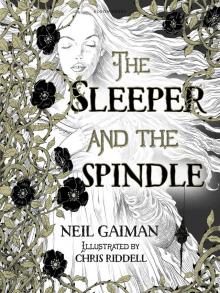 The Sleeper and the Spindle
The Sleeper and the Spindle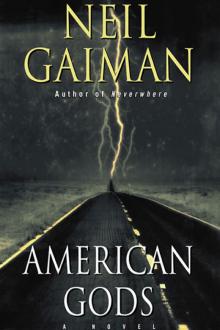 American Gods
American Gods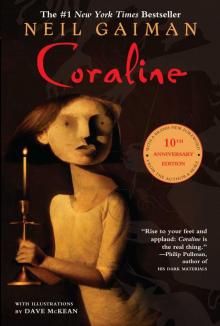 Coraline
Coraline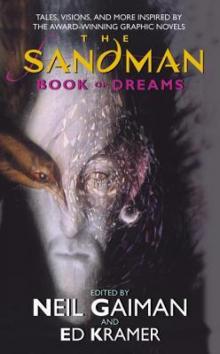 The Sandman: Book of Dreams
The Sandman: Book of Dreams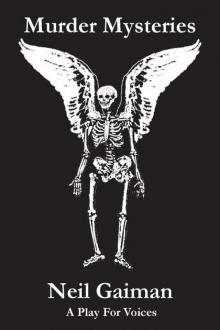 Murder Mysteries
Murder Mysteries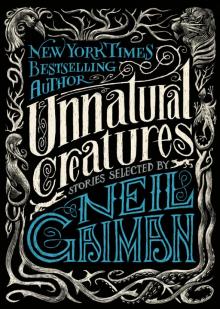 Unnatural Creatures
Unnatural Creatures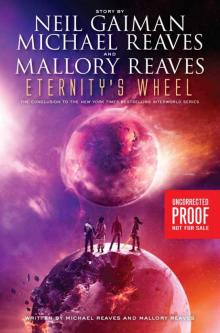 Eternity's Wheel
Eternity's Wheel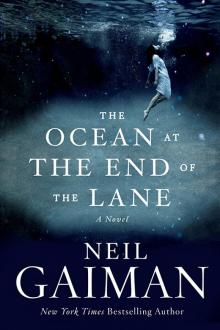 The Ocean at the End of the Lane
The Ocean at the End of the Lane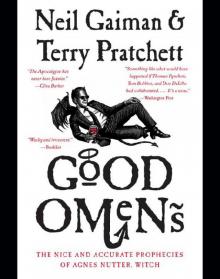 Good Omens
Good Omens Stardust
Stardust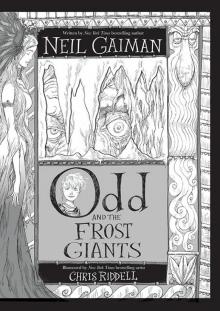 Odd and the Frost Giants
Odd and the Frost Giants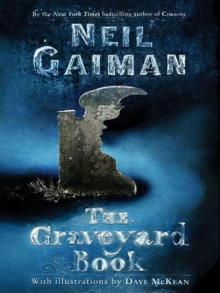 The Graveyard Book
The Graveyard Book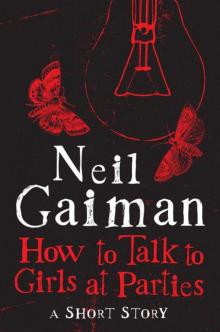 How to Talk to Girls at Parties
How to Talk to Girls at Parties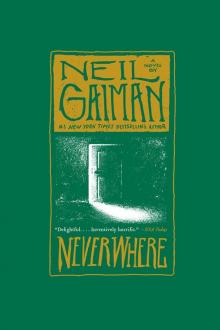 Neverwhere
Neverwhere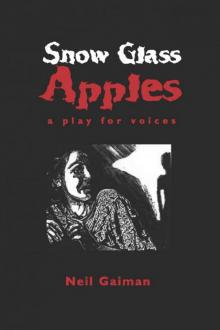 Snow, Glass, Apples
Snow, Glass, Apples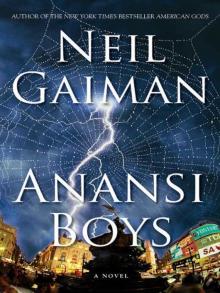 Anansi Boys
Anansi Boys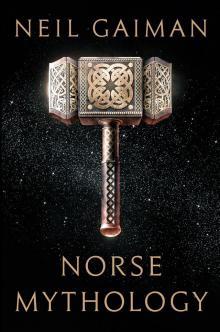 Norse Mythology
Norse Mythology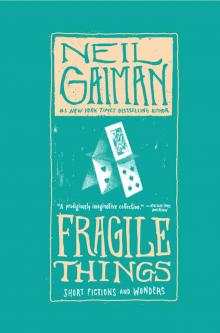 Fragile Things: Short Fictions and Wonders
Fragile Things: Short Fictions and Wonders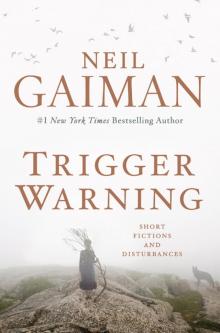 Trigger Warning: Short Fictions and Disturbances
Trigger Warning: Short Fictions and Disturbances InterWorld
InterWorld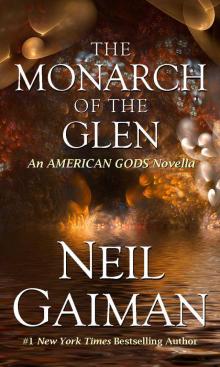 The Monarch of the Glen
The Monarch of the Glen The Neil Gaiman Reader
The Neil Gaiman Reader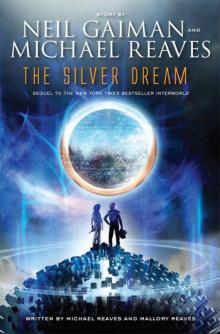 The Silver Dream
The Silver Dream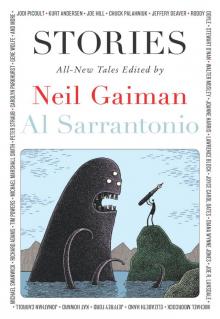 Stories
Stories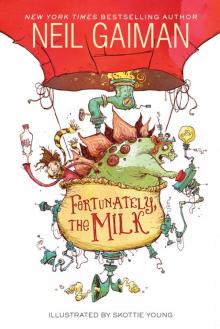 Fortunately, the Milk
Fortunately, the Milk Art Matters
Art Matters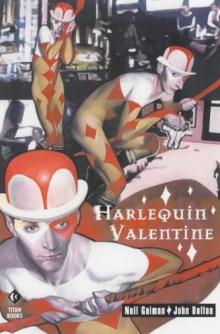 Harlequin Valentine
Harlequin Valentine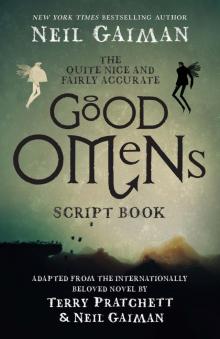 The Quite Nice and Fairly Accurate Good Omens Script Book
The Quite Nice and Fairly Accurate Good Omens Script Book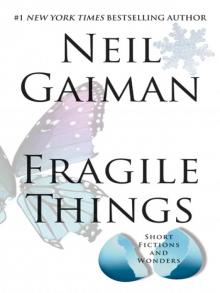 Fragile Things
Fragile Things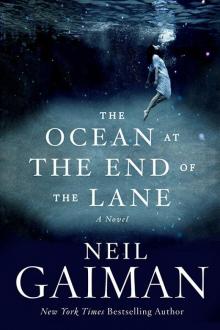 The Ocean at the End of the Lane: A Novel
The Ocean at the End of the Lane: A Novel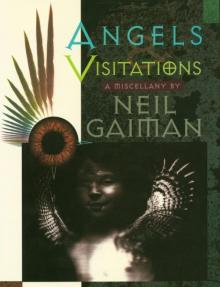 Angels and Visitations
Angels and Visitations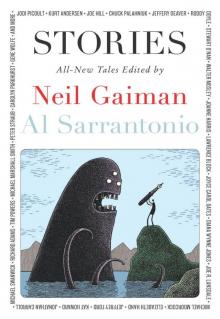 Stories: All-New Tales ngss-1
Stories: All-New Tales ngss-1 Don't Panic
Don't Panic Darker Terrors
Darker Terrors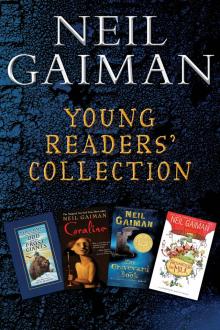 Neil Gaiman Young Readers' Collection
Neil Gaiman Young Readers' Collection A Study In Emerald
A Study In Emerald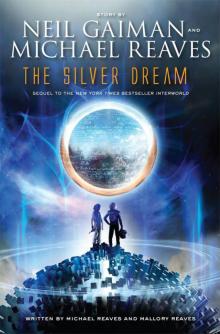 The Silver Dream: An InterWorld Novel
The Silver Dream: An InterWorld Novel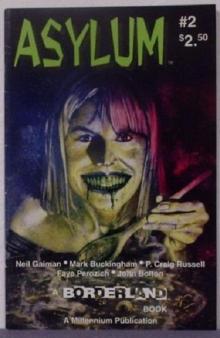 Feeders and Eaters
Feeders and Eaters Psychos
Psychos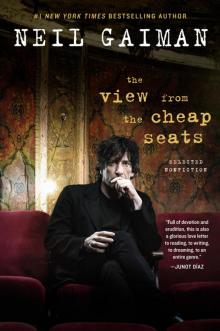 The View from the Cheap Seats
The View from the Cheap Seats Trigger Warning
Trigger Warning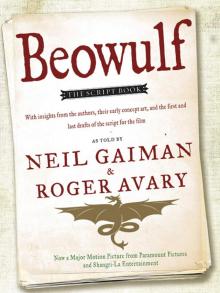 Beowulf
Beowulf Nessun Dove
Nessun Dove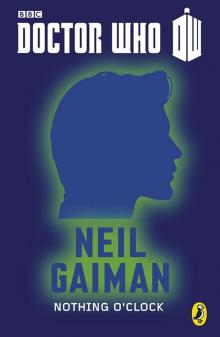 Doctor Who: Nothing O'Clock: Eleventh Doctor: 50th Anniversary
Doctor Who: Nothing O'Clock: Eleventh Doctor: 50th Anniversary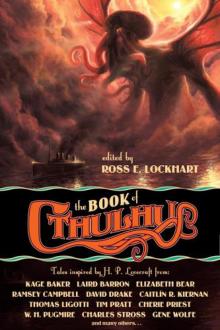 The Book of Cthulhu
The Book of Cthulhu